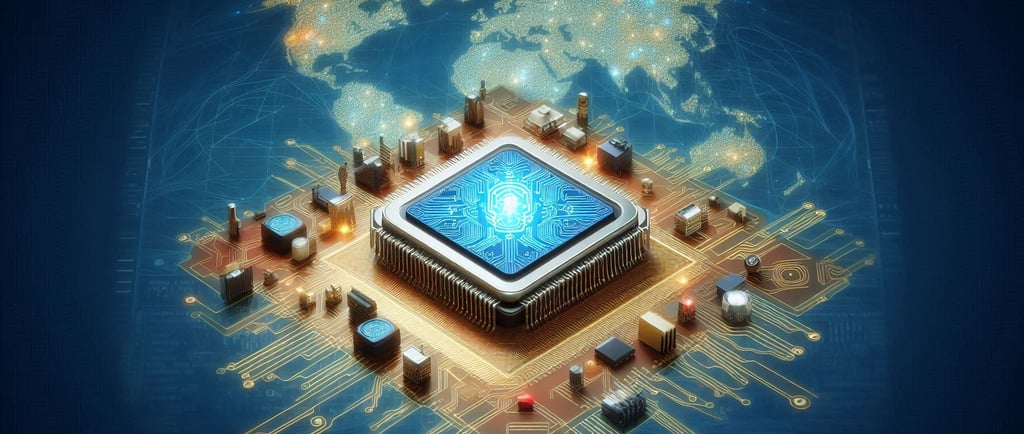Microsoft Urges Trump Administration to Reconsider AI Chip Export Restrictions to Maintain US Leadership
Microsoft has called on President Trump to ease export restrictions on crucial computer chips needed for AI technology. These restrictions, initially imposed by the previous Biden administration, aimed to address national security concerns by limiting the export of American AI components to various foreign markets. Microsoft argues that the restrictions undermine the United States' leadership in AI technologies and exacerbate the country's trade deficit. The company highlights that even US allies, such as Taiwan, South Korea, India, and Switzerland, are adversely affected by these restrictions. The unintended consequence of the current restrictions is that Tier Two countries may be forced to look elsewhere for AI infrastructure and services, potentially benefiting China's rapidly expanding AI sector. Microsoft urges the Trump administration to reconsider its stance to maintain the US's leading position in the AI sector.
POLICYHARDWARE
The AI Maker
3/3/20252 min read


In recent developments, Microsoft has urged President Trump to reconsider the export restrictions on crucial computer chips essential for AI technology. These restrictions, initially imposed by the previous Biden administration, aimed to address national security concerns by limiting the export of American AI components to various foreign markets2. However, Microsoft has raised alarms that maintaining these restrictions could inadvertently grant China a strategic advantage in the AI sector, as emerging markets may be compelled to seek advanced technologies elsewhere.
Microsoft's argument is twofold. Firstly, the restrictions undermine the United States' leadership in AI technologies, a key priority for US foreign policy. Secondly, they exacerbate the country's trade deficit, another critical concern3. The company has highlighted that even US allies, such as Taiwan, South Korea, India, and Switzerland, are adversely affected by these restrictions4. By placing these allies in a "Tier Two category" and imposing quantitative limits on American tech companies' ability to build and expand AI datacenters in their countries, the restrictions go beyond what is necessary.
The unintended consequence of this approach, as noted by Microsoft, is that Tier Two countries may be forced to look elsewhere for AI infrastructure and services. The obvious alternative, according to Microsoft, is China, which is rapidly expanding its AI sector6. If the current restrictions remain unchanged, the Diffusion Rule could become a significant boon for China's AI industry.
The US and China are currently engaged in a "chip war," with both nations racing to develop and build high-powered chips domestically. China has declared US chips unsafe and urged companies to use domestic semiconductors. This competitive landscape underscores the urgency of Microsoft's plea to ease export restrictions.
Earlier in 2025, Microsoft announced plans to invest $80 billion in AI data centers, with a significant focus on export power. In 2024, the company also pledged over $35 billion in investments across 14 countries to build AI and data center infrastructure. Microsoft has reiterated the importance of cooperation with "allies and friends" to maintain the US's leading position in the AI sector.
In conclusion, Microsoft's call to ease export restrictions on AI components is rooted in a broader strategy to strengthen the US's leadership in AI technologies and address the trade deficit. The company warns that the current restrictions could inadvertently benefit China and urges the Trump administration to reconsider its stance. As the US and China continue their "chip war," the decisions made in the coming months will have far-reaching implications for the global AI landscape.
Cited: https://www.techradar.com/pro/microsoft-warns-trump-against-strategic-misstep-in-ai-race
Your Data, Your Insights
Unlock the power of your data effortlessly. Update it continuously. Automatically.
Answers
Sign up NOW
info at aimaker.com
© 2024. All rights reserved. Terms and Conditions | Privacy Policy
